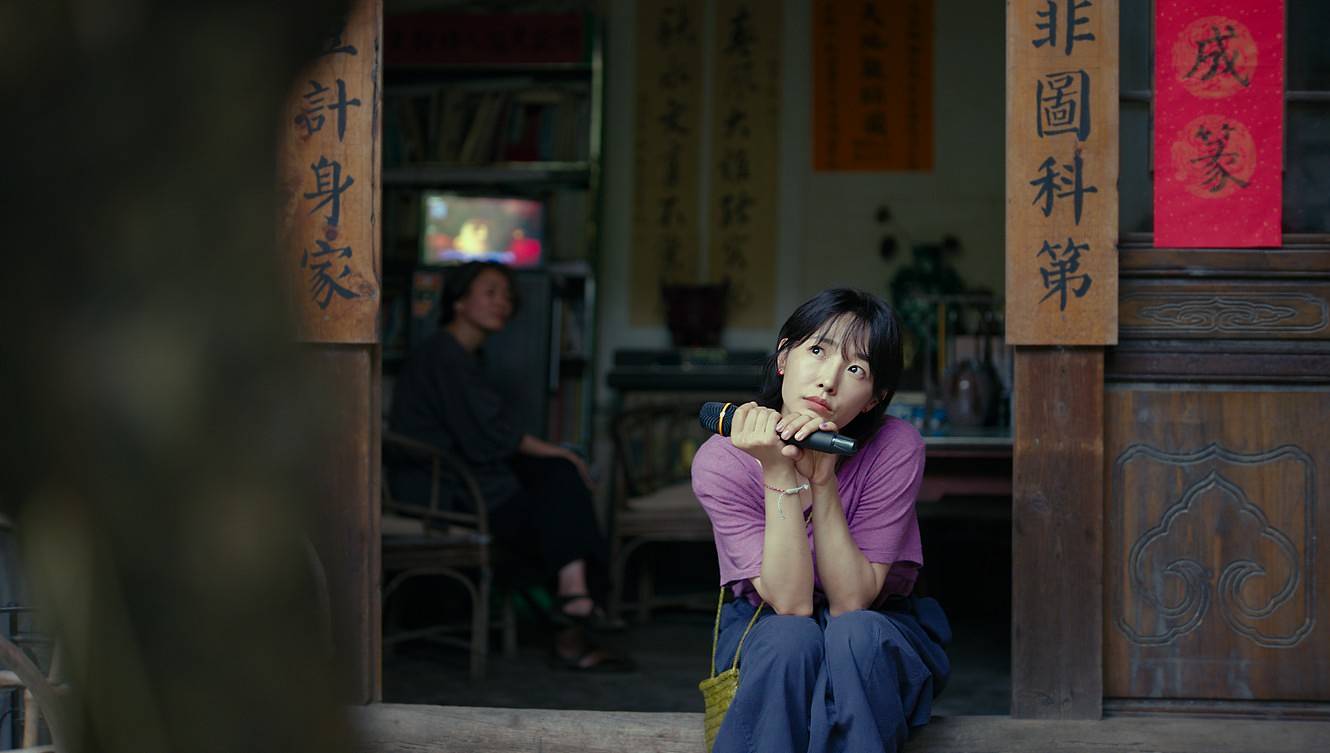Gloaming in Luomu
Luomu di huangfen
VERDICT: Zhang Lu conjures an enigmatic, engaging and visually enchanting cinematic experience with ‘Gloaming in Luomu’.
In the new film by Korean-Chinese filmmaker Zhang Lu, a heartbroken loner heads off to a small town to find a long-vanished soulmate. It’s hardly a groundbreaking premise; in fact, the director himself has broached this narrative quite a few times (Gyeongju, Fukuoka) to various degrees of artistic accomplishment and festival success. But Gloaming in Luomu offers his most radical reworking of the theme to date, with the Sichuan-set tale unfolding like a delirious dream, the mysteries of its complex characters and metaphysical conversations heightened by meticulous camerawork and imaginative sound design.
During his introduction to the film, which bowed in competition at the Busan International Film Festival, Zhang said Gloaming in Luomu was a modest entrée to a more sizeable, yet-to-be-finished collaboration with his lead actor, the Chinese rom-com queen Bai Baihe. But this film looks anything but a hastily concocted spin-off.
Revolving mostly around a woman’s wanderings in a town frequented mostly by hikers preparing to scale nearby Mount Emei, Gloaming is subtle in its emotions but ambitious in its stylistic experimentation – not to mention the understated allusions to identity and history, two issues Zhang has long been preoccupied with. Mirroring the Chinese magical realism which has captivated festival programmers in recent years, the film should chalk up good mileage on the circuit after its bow in Busan.
The roamer in Gloaming is Bai (Bai Baihe), an academy-trained dancer who arrives in the titular town with a postcard bearing a cryptic message from her missing lover (“An evening in Luomu”, a line that also serves as the film’s more mundane and less effective Chinese title). Recovering from a massive sunstroke, Bai is nurtured back to health and her senses by Liu (Liu Dan), the jaded, hard-drinking woman who owns a local guesthouse.
While the two women’s initial chats revolve around the disappeared man – Bai is shocked to learn that her ex, a poet, stayed in Liu’s inn for three years – the tête-à-tête eventually expands outward to a wild variety of topics. Rootlessness, for example. Bai talks about leaving her home in Qingdao to study and find work in the bustling capital; Liu laments losing her northeastern accent – and a part of herself – after spending years intoning standard Mandarin on state radio in Beijing. “It’s hard on you when someone can’t guess where you’re from,” she says.
In another heart-rendering scene, Liu Dan delivers an evocative reflection on human existence reciting from The Wild Grass by Chinese novelist Lu Xun. It represents a tribute, no doubt, to the scathing power of those words and the progressive social movement he co-founded a century ago. It’s just one of many examples of Lu’s wonderfully complex text. Profound without being pretentious, the dialogue is peppered with references to art and philosophy, the lines given substantial weight by the cast’s sound delivery.
Rather than playing up Luomu’s kitschy, touristy sheen, Piao Songri’s cinematography transforms the town into a disorienting maze of enigmatic spaces. Beyond the neat alleyways radiating pleasant provincial charm, ruined buildings loom large with ghostly presences within them. Liu’s guesthouse, which appears to be a calm refuge at the start of the film, gradually turns sombre as its proprietor tells her new friend about her past trauma. All these are spliced together, with jump cuts aplenty, by editor Liu Xinzhu, with Wang Ran adding a further sense of strangeness in a spectral soundtrack of strange white noise and short, sharp blasts of sweeping classical music.
Director, screenwriter: Zhang Lu
Producer: Peng Jin
Cast: Bai Haihe, Liu Dan, Huang Jianxin
Cinematography: Piao Songri
Editing: Liu Xinzhu
Production design: Zheng Yican
Costume design: Chen Fei
Sound: Wang Ran
Production company: Chengdu Lu Films
World sales: Beijing Monar Films
Venue: Busan International Film Festival (Competition)
In Mandarin
99 minutes

